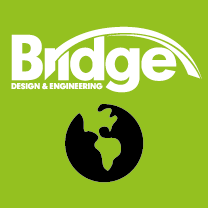Welding defects linked to the steel fabricator Severfield have been found in a number of UK bridges, leaving it with a remediation bill of US$25.5 million.
In its interim financial results, the structural steel fabricator said it had identified bridges that did not comply with its clients’ welding specifications. The issue relates to a particular bridge specification and “sub-optimal choices of welding procedures, exacerbated by limitations in the specified weld testing regime for these projects.”
Severfield says that it is carrying out a review with the affected clients, industry authorities and insurers to better understand how to resolve the issues. It says the defects have not affected the safety of any operational bridges, and that the nature of the required remedial work is yet to be determined.
Nine structures in the major rail upgrade project HS2 are affected. HS2 is withholding the names of six as commercial negotiations about remedial work with Severfield and others in its supply chain are ongoing.
The three bridges it has named are Duddeston Mill Road bridge, Birmingham, which opened in August; Princes Risborough to Aylesbury rail bridge, Aylesbury/Stoke Mandevill, which opened in October 2023; and Harvil Road bridge, Hillingdon, which opened in February.
HS2 says that the defects are linked to one factory, adding: “These bridges have been subjected to testing, including the use of ultrasound technology to examine the welds, and deemed safe to place into service with no risks. The defect impacts on the 120-year lifespan of the bridge, meaning they would potentially require maintenance sooner than planned.
“This will not impact on the safety or quality of the operational railway which is being designed to the highest standards.”
National Highways, the government company that operates, maintains and improves motorways and A-roads in England, is also quick to reassure that the bridges are safe to use. It has said that five of its structures are affected, and that the issue relates to welded connections on the steel beams that sit beneath the bridge deck. The affected bridges are A30 Chiverton, A46 Binley Junction A428, A454 Catherine De Barnes Lane South B4438, M42 Solihull Road B4102, and A1 Allerdene Railway Replacement.
However, one civil engineer specialising in rail structures told Bd&e that an assessment of the welds should be considered to ensure that the defects could not generate brittle fractures - which are instantaneous and more likely to occur at low temperatures - especially as some of the affected structures are in use.
With the majority of the works for the high-speed rail programme being based on self-certification, the revelation of the multiple welding defects is likely to raise questions around the QA and QC systems in place, including whether additional structural details could also be affected.
An industry insider told Bd&e that the defects themselves are known but the cause of the defects is yet to be determined.



